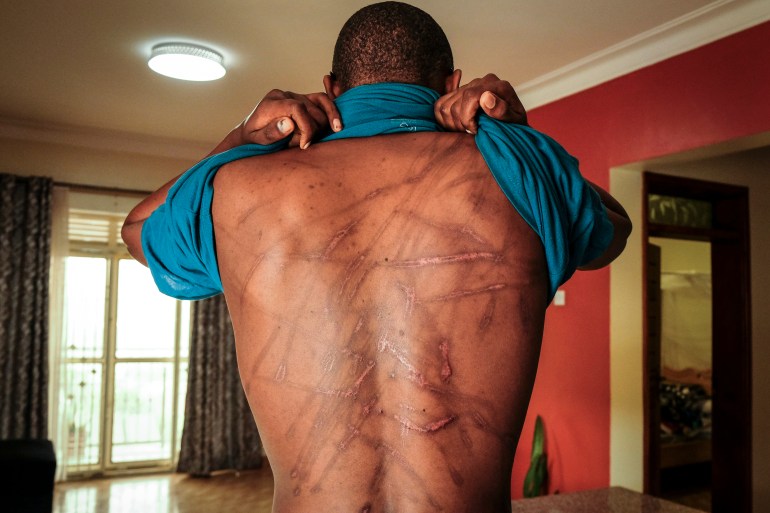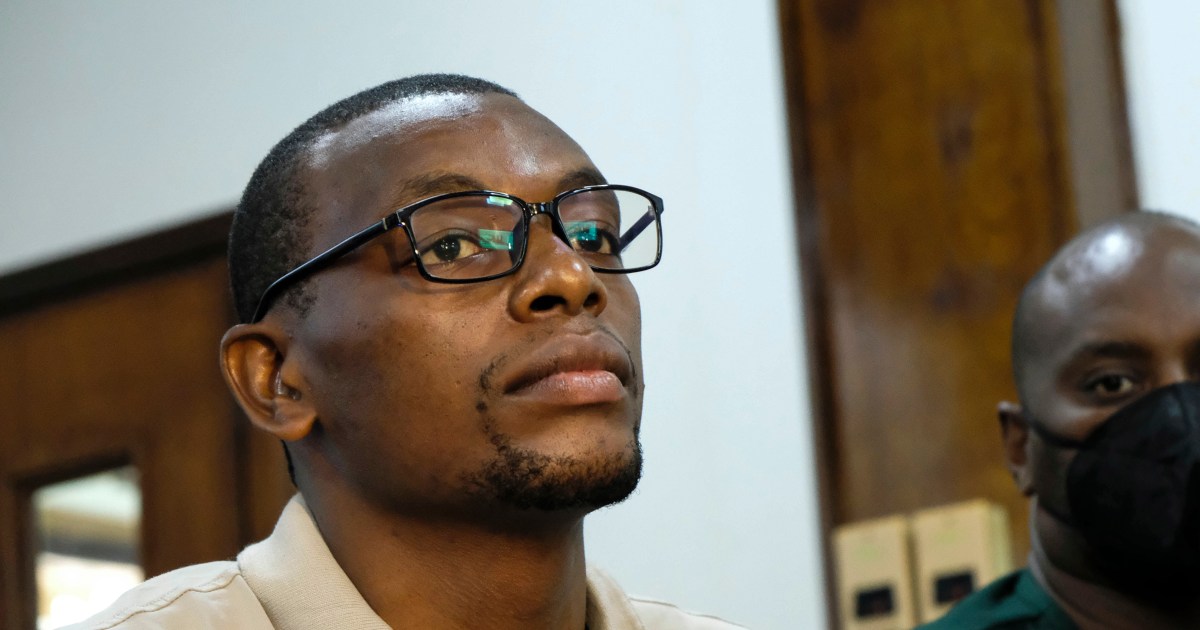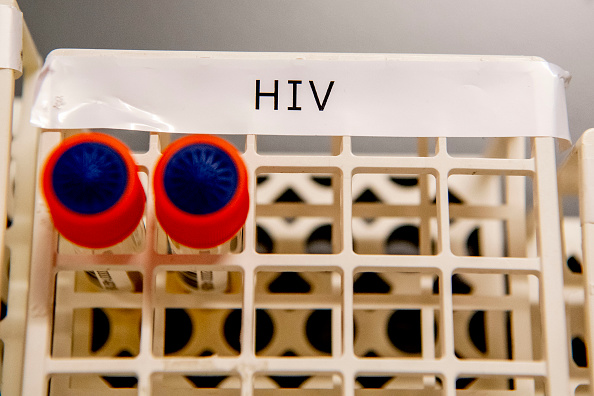How one writer’s story ignited a debate about torture in Uganda | Human Rights News
Kampala, Uganda – In December, Ugandan activist and writer Kakwenza Rukirabashaija wrote a series of insulting tweets about President Yoweri Museveni and his son.
This week, he fled the country, scarred but unbowed after a monthlong ordeal in state detention.
“They tortured me,” he told Al Jazeera by phone, saying that he was in Malawi and hoped to reach Germany for medical treatment.
“They were using pliers to pluck flesh from my thighs. Whenever I look at my body in the mirror I shed tears.”
Rukirabashaija says that soldiers abducted him, forced him to dance and beat him unconscious after he wrote on Twitter that Muhoozi Kainerugaba, the president’s son and commander of the land forces, was “obese” and a “curmudgeon”.
He alleges that these abuses were committed at the headquarters of Special Forces Command (SFC), an elite presidential guard that was led for many years by Kainerugaba himself and remains fiercely loyal to him. A spokesman for the unit denied it was involved.
If torture was meant to silence Rukirabashaija – who won the PEN Pinter Prize for international writers of courage in 2021 – it backfired.
After his release on January 26, he returned to social media and gave a harrowing television interview, displaying the scars that crisscrossed his back and thighs.
 Rukirabashaija displays scars on his back he says were inflicted from torture in detention [Hajarah Nalwadda/AP Photo]
Rukirabashaija displays scars on his back he says were inflicted from torture in detention [Hajarah Nalwadda/AP Photo]His case ignited a national debate.
More than 100 opposition legislators – some of whom have themselves been tortured in the past – have walked out of Parliament in protest against the torture and illegal detention of their supporters.
The United States and the European Union issued statements condemning human rights violations in Uganda.
While Rukirabashaija’s story has received the most attention, the history of torture under Museveni is long and deep.
Record of abuse
In the tense months surrounding last year’s presidential election, the Ugandan security forces detained more than 1,000 people, many of them bundled into unmarked minivans and driven to unknown locations.
Some of those who were released made allegations of torture, including that they had been blindfolded, beaten with cables, had genitalia squeezed, were scalded with boiling water, burned with irons, forced to sit in cold water, injected with unknown substances, and given electric shocks.
Although the details of these claims are hard to verify, the evidence was often imprinted on victims’ bodies: burns, scars, lacerations and missing toenails.
Allegations of torture continue to emerge. On January 31, Samuel Masereka, an opposition activist, told journalists that he was tortured by military intelligence officers after being detained the month before.
“They caned me to an extent that I lost my consciousness,” he said, displaying wounds on his swollen feet and scars on his stomach, back and legs.
The government later claimed he is linked to a rebel group.
The African Centre for Treatment and Rehabilitation of Torture Victims, a non-governmental organisation in Kampala, registers more than 1,000 survivors of torture every year, most of them victims of beatings by the police or army.
“Unfortunately, torture is still prevalent in Uganda,” said Samuel Herbert Nsubuga, the NGO’s chief executive. He noted that Uganda passed an anti-torture law in 2012 but “we have not yet had any officers of note who have been prosecuted and convicted”.
Meanwhile, Ofwono Opondo, a government spokesman, said “our safeguards are by and large effective and working”, claiming that cases of torture are “isolated” and “extremely low” in number.
“It looks like in Kakwenza [Rukirabashaija]’s case there is what we would call ‘dark forces’ in the security services who use underhand methods and they will try to cover their footmarks,” he added, without giving specifics.
In a televised address last August Museveni said torture is “unnecessary and wrong”, blaming its persistence on “indiscipline” and “traditional ways”.
“Why do you beat a prisoner,” he asked, displaying a picture of a suspect with a scarred back. “Because you are too lazy to interrogate him.”
He nonetheless insisted that “our human rights record is incomparable to any in the world”.
But Mathias Mpuuga, the leader of the opposition in Parliament, told Al Jazeera that the president’s speech was “window-dressing” which obscured a long history of torture in Uganda.
“Torture has been the hallmark of security agencies in this country,” he said. “It’s now coming out because of media proliferation, courtesy of social media, and the world can now tell how it is happening.”
In 1989, three years after former rebel Museveni fought his way to power, a report by Amnesty International noted a “significant improvement” in human rights compared with the earlier regimes of Idi Amin and Milton Obote. Yet it also described Museveni’s soldiers beating prisoners with iron rods and tying them “kandooya-style”, with the upper arms bound painfully together behind the back.
Those methods were still being used in 2004, according to Human Rights Watch (PDF), together with electrocution, strangulation, isolation, death threats and “Liverpool” water torture, where victims were forced to lie face up, mouth open, beneath a flowing tap.
Foreign support
Throughout his 36 years in power, Museveni has enjoyed strong financial and military support from the United States and other Western governments, despite their occasional criticisms of his record on human rights.
That relationship may finally be shifting as hardliners in the Ugandan security forces tighten their grip and repression becomes harder to ignore.
In December, the US imposed financial sanctions on Abel Kandiho, Uganda’s military intelligence chief, accusing him and his officers of subjecting detainees to “horrific beatings and other egregious acts … including sexual abuse and electrocutions, often resulting in significant long-term injury and even death”. Kandiho has since been moved to a senior position in the police.
Yet, Museveni will have less need for the US backing once Uganda starts pumping oil, a long-awaited milestone expected in 2025. The World Bank forecasts that the project will generate $1.5bn a year for government coffers – more than the $1bn that the country receives annually from the US.
Patrick Pouyanné, chief executive of TotalEnergies, praised the “clear leadership” of President Museveni on a recent visit to Kampala, as he declared that the French oil giant and its partners would invest $10bn in the Ugandan project.
In January, TotalEnergies announced its withdrawal from Myanmar, citing human rights concerns, but it evidently feels that Museveni is a man it can do business with.
Meanwhile, Rukirabashaija says he hopes to return to Uganda as soon as he has had the medical treatment he needs.
“Uganda is my country, it’s where I was born, so I have to come back,” he said. “I will be waiting for the dictator’s reaction.”




